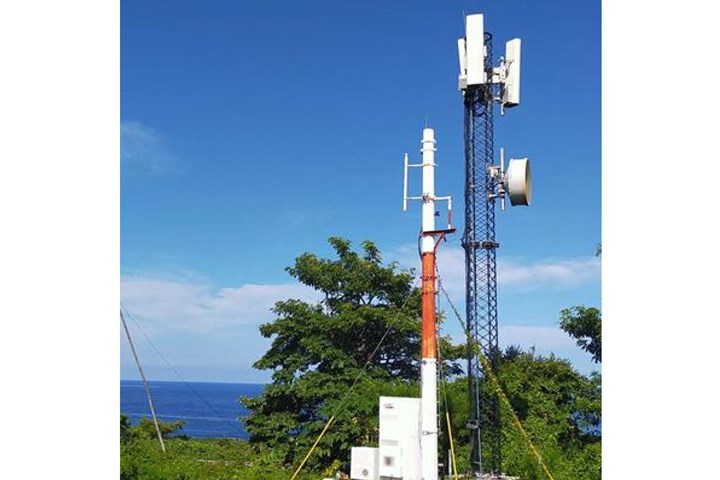Sojitz invests in IsoTruss composite telecommunication infrastructure
The lattice telecommunication structure is equipped with the structural capabilities for bending and torsion and is corrosion-resistant, an advantage to coastal areas.

Photo Credit: Sojtiz
Sojitz Corporation (Tokoyo, Japan) has announced it will invest in IsoTruss (Provo, Utah, U.S.), a construction startup company manufacturing carbon fiber structures, specifically telecommunication towers. With this investment through a third-party allotment of shares, Sojitz will acquire exclusive sales rights for IsoTruss products in Asia. In addition to plans to establish production bases in Asia, Sojitz aims to accelerate the expansion of the telecommunication infrastructure business, primarily in this region.
According to Sojitz, IsoTruss builds cell towers and other structures using composite materials such as carbon fiber-reinforced plastic and its own designed lattice structures which are equipped with the structural capabilities for bending and torsion. Requiring less material to be manufactured, the lattice structure is said to be both lighter in weight and requires lower material costs when compared to other carbon fiber structures.
Further, compared to the traditional components for steel towers, IsoTruss structures are easier to transport and install, resistant to corrosion, and boast a service life of several decades. Based on these features, Sojitz contends that IsoTruss structures exhibit a clear advantage in terms of lifecycle costs.
These features are expected to be advantageous as disaster-resistant structures in Asian regions where typhoon-related tower damage is foreseeable. Sojitz says the structures will be used in coastal areas where salt damage often occurs, as well as in island areas where transportation can pose a challenge. Additionally, with the rollout of 5G, IsoTruss structures are anticipated to help meet growing demand in urban areas for rooftop and monopole towers.
Related Content
-
Composites manufacturing for general aviation aircraft
General aviation, certified and experimental, has increasingly embraced composites over the decades, a path further driven by leveraged innovation in materials and processes and the evolving AAM market.
-
Carbon fiber, bionic design achieve peak performance in race-ready production vehicle
Porsche worked with Action Composites to design and manufacture an innovative carbon fiber safety cage option to lightweight one of its series race vehicles, built in a one-shot compression molding process.
-
Plant tour: Teijin Carbon America Inc., Greenwood, S.C., U.S.
In 2018, Teijin broke ground on a facility that is reportedly the largest capacity carbon fiber line currently in existence. The line has been fully functional for nearly two years and has plenty of room for expansion.












